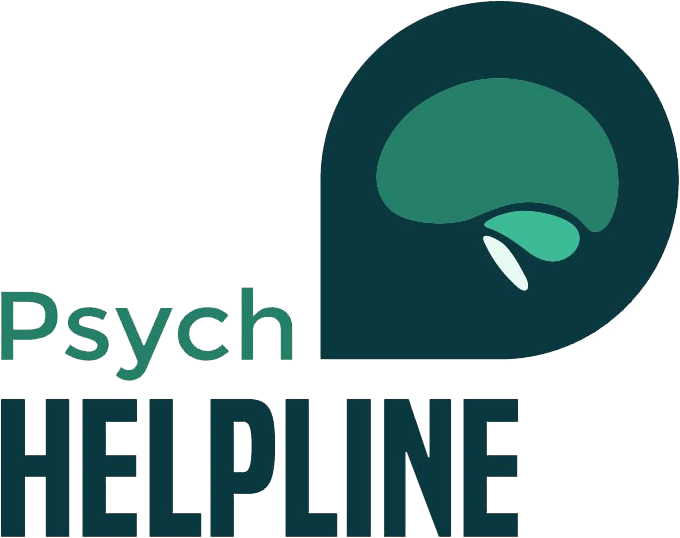Table of Contents

Were you slightly shocked that your career counselor suggested business psychology as a good career choice? Might sound lucrative to you now, but you’ll soon change your opinion once you get the whole scoop. The number of people that are still unaware of psychology’s influence on the business world is quite appalling. When everything revolves around the liking of a customer and amazing marketing campaigns, psychology does have a huge role to play. Big corporations heavily rely on people that are equally aware of people’s mindsets and technicalities associated with the business world.
So, this is exactly where business psychology comes into play! This guide targets the scope and extent of a degree in business psychology. Furthermore, we’ll also be addressing some pretty common and influential career trajectories you can step into after finishing your degree.
Business Psychology: Beginning With The Basics
Becoming a practicing expert in the field of business psychology requires a bachelor’s degree in this particular field. In the case of extensive future research or better opportunities, a Master’s or Doctorate degree can pave the way for you. Before beginning your practice in any of the fields down below you’ll also require an official approval in the form of a license or certification. An important thing to note here is that business psychologists can both be hired as in-house staff or they can simply provide temporary counseling to higher-ups of a business. There are mainly two kinds of business psychologists.
- An advisor
- A researcher
The requirements for your undergrad or postgraduate degree will depend on the requirements assigned in your country or state. They almost always vary, so it’s better to take a look at all your accessible options before applying anywhere. It doesn’t matter what particular area of interest is your forte or what kind of job you’re looking into. At the end of the day 3 responsibilities will always be at your disposal;
- The enhancement of morale among the workforce
- Improvement of working conditions and workplace environment
- The maintenance of a smooth workflow and better revenue
It’s part of a business psychologist’s job to council business owners regarding their future business-related decisions. To ensure customer as well as employee satisfaction; business psychologists design analogies and strategies. They heavily cover the hiring process, the creation of advertising campaigns, customer/employee feedback, etc.
A Degree In Business Psychology: Why Should I Care?
Now let’s cut to the chase and discuss why you should be seriously considering business psychology an option for college. It’s okay if you’re in it for a fat paycheck. It’s also fine if your priorities lie somewhere else. That’s because business psychology has a lot to offer;
Mental Satisfaction
If you’re someone who’s not as worldly as most people are nowadays; good for you. There are still some careers that cater to your needs and provide you something more than just money. Pursuing a career in a field related to psychology can fulfill that need of yours. By paying attention to people’s responses and designing better strategies. You’re automatically making a difference in people’s lives and making them simpler. So, indirectly you’re also doing something that satisfies everyone’s needs; including yours. A study conducted on people pursuing psychology as a career has shown that; Around 93% of people associated with such fields report positive results and mental satisfaction with their career.
It’s The Perfect Combo
Numbers and behavioral studies connect quite well if you think about it well enough. Especially if you’re someone who has a knack for both of these things; pursuing this degree can make life so much simpler. Business psychology gives you a chance to examine people’s mindsets at a much deeper level. Later on, the same degree gives you chance to apply that data in businesses to generate some stimulus. So, what could be more exciting than that? It’s a whole new challenge every day and as aggravating as it may seem; at the end of the way you’ll be the one acting as the driving force for a successful business.

It Pays Well
If you’re simply in it for the money, business psychology’s still got you covered. According to a survey, Industrial-organizational psychologists are among the highest-paid psychologists around the globe. The average salary for the job in question is $102,530. Sounds like a handful doesn’t it? Engineering psychologists have been said to be achieving similar paychecks. Although you do need a doctorate degree to get paid that much in the latter.
Business Psychology: 6 Career Trajectories For Your Consideration
1. Human Factors Analyst
Now, have you ever come across a website that was way too hard to understand and operate? When such sites aren’t too user-friendly, users rarely spend more than a minute on their home pages. As a result, brands lose a huge amount of money on future sales. This lack of comprehension can have a huge impact on yearly sales. Probably, the sites in question didn’t bother hiring a human factors analyst. As a human factors analyst, it’s your job to cater to the customer’s needs by paying heed to the sales process. Human factors analysts directly target three areas;
- How to turn a product/service simpler and more comprehensible
- How do people interact in certain environments and situations
Due to their experience in business psychology and customer behavior, HFA can have a better understanding of the things that need to be altered and adapted. For example, if there’s a website involved, which colors would make the whole interface look more welcoming? Are there are any particular fonts the customers would find much easier to read? After making sense of all these factors, an HFA can then interact with the design department of a corporation. Consequently, the services or products they’ll now sell would be much more in sync with what their customers want.
2. Advertising or Marketing Executive
Certain brands have the potential to create amazing products and provide superb services. Yet, they lack in one particular area that could possibly multiply their sales. What we’re talking about here is their marketing strategy. Such brands usually lack the creative forces to run a successful marketing campaign. So, then the question remains; if people aren’t even aware of your brand’s presence, how can you expect them to buy your services?
The solution to this problem lies in the hand of a marketing executive. Taking great advantage of your business psychology degree you can design a campaign that fits a company’s motto and theme. Marketing executives are responsible for the creation of fresh content that can clearly communicate a brand’s message to the people they want to target. This can be done through social media campaigns, pamphlets, billboards, or through the usual advertisements that run on cable TV.
Furthermore, due to their expert’s analysis on customer psychology, a marketing executive with a business psychology degree can find the triggers that coerce a customer to buy a product. Multiplying and applying all these positive triggers can automatically lead to improved sales and better annual revenue.
3. Human Resource Executive
It’s 2021, so needless to say, at this point, every huge or mildly big corporation has a dedicated HR department. Having an HR department is absolutely necessary and in accordance with modern business standards. A company’s HR department probably has the biggest role to play in its survival by finding an appropriate workforce. If the workforce lacks in any departments, the company’s probably going to crumble down after a while. So, as a Human Resource Executive with a degree in business psychology you’ll be deemed responsible for;
- Providing consultation
- Handling employee relations
- Overlooking a fair interviewing and hiring process
- Carrying out performance evaluations in employees
- Handling timesheets
- Investigating and addressing conflicts among the workforce

4. Teaching Faculty
What’s so great about business psychology is that; its career trajectories and scope is never-ending. Your degree specializes in both human behavior and business. So, the subjects that you can easily target as a member of a college’s teaching faculty may include;
- Industrial Relations
- HR Management
- Consumer Psychology
- Engineering Psychology
- Organizational Management
Picking up a master’s or doctorate degree before pursuing any job opportunities seems like a great start. As a dedicated professor in the field of business psychology, you’ll get a chance to cater to the upcoming generation of business psychology. Moreover, you’ll have enough resources to supervise future research in the field of your interest.
5. Industrial Counselor/Industrial Psychologist
One of the most common career trajectories people explore after completing their business psychology degree is that of an industrial counselor. It’s the job of an industrial council or an industrial psychologist to cater to a workplace environment. Additionally, industrial counselors also play a huge role in improving the performance of a business. Industrial psychologists exclusively notice the triggers that might be lowering productivity rates in a workplace. Furthermore, they rectify these issues and control the lack of productivity by introducing means of improvement. This also includes solving conflicts among workers by addressing their needs in a much forward manner. This includes investigating queries like;
- Are the employees trying to communicate any grievances to their employers?
- Is there a need to improve working conditions by installing better furniture or air conditioners?
- Are there any particular employees creating issues for others and spoiling the entire staff’s day?
- Is there a need for more incentives or paid holidays?
Industrial psychologists are exclusively also involved in the hiring process and job placement. They are responsible for guiding higher authorities of a firm by putting forward some screening rules during interviews. Thus, they’d make a better decision regarding the candidates that are qualified for the placement and fit the job description. Lastly, one of the most important tasks carried out by Industrial psychologists is catering to the psychological needs of newly hired workers. Consequently, they’ll be able to adapt to the work environment at a faster pace.
6. Corporate Consultant
A corporate consultant’s area of expertise is quite similar to that of an industrial psychologist. As the name indicates corporate consultants are highly involved with big or small corporations. Usually, huge corporations hire their expertise to find reasons behind productivity hindrances. It could be due to a long-running economic turmoil in their business or sudden losses. Additionally, corporate consultants also develop strategies to make the work environment more positive.
When associated with any corporation, corporate consultants target mainly three goals; increased productivity, improved working conditions, and better performance. Thus they are in direct contact with the workforce. In this way, they can take a better look at all the reasons that might be hampering the workforce’s ability to achieve bigger roles at a faster pace.

Final Words
Now, if you’re someone who still hasn’t finished their college application it’s understandable. But, at least now you enough about one particular field that’s going to be a handful in the future. The advertising and marketing world is flourishing more and more with each passing day. Consequently, there’ll be more job opportunities and better chances of rising up on that corporate ladder. We hope that this article revealed all you needed to know about pursuing a career in business psychology. If you’re someone who has a knack for problem-solving skills get aboard because most corporations badly need your expertise!






